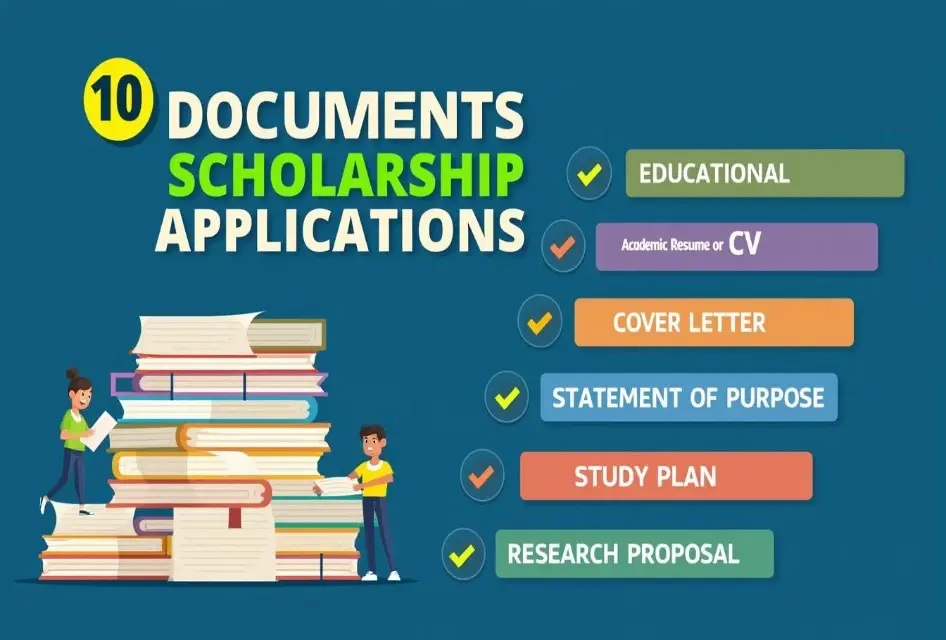
How to Deal with Being Denied a Scholarship and Come Back Stronger
Guide Based on main ideas and expert advice coupled up with my Personel hardships in getting a scholarship in the UK.
The subject line of the email, "We regret to inform you..." might feel like a hit to the belly. A scholarship rejection might feel very personal after spending hours, days, or even months completing your application.
How to Deal with Being Denied a Scholarship
It's easy to start thinking things like, "I'm not good enough" or “All that work was for nothing”. You are not the only one who feels this way Every successful scholarship winner has a folder full of "no's" One kid, who ended up getting more than $125,000 in scholarships, was turned down 70 times.
Another student, who is now a PhD student at Yale, was turned down for more than ten scholarships before getting five fully-funded international grants
Getting scholarships isn't easy; it's a long race with a lot of obstacles. The secret to success isn't not getting rejected; it's understanding how to deal with it, learn from it, and use it as motivation to keep going
Why People Say No: It's Not Usually Because of You
It's important to know that there are many elements that play into a committee's decision, and most of them are completely out of your control
- The Numbers Game: There are a lot of people that want scholarships. A program can get thousands of applications for a few awards. One expert said that a department might only have money for 10 students, which means they have to turn away hundreds of qualified applicants
- Specific Quotas and Criteria: Committees usually have certain groups of people or areas of study they want to help in a given year. This could mean:
- Quotas by country or region
- Quotas by gender
- Focus on a field of study (for example, more awards for STEM or conflict studies)
- A certain "story" they wish to sponsor, such helping pupils from a certain economic background
A Story That Doesn't Fit: Your story may have been strong and unusual, but it may not have been what the committee was seeking for this time.
One student said she didn't get a $30,000 scholarship because her financial background didn't fit the profile of a usual winner, even though she had great grades. Weeks later, she won a national scholarship that was only given to 10 students since her narrative fit their objective so well
- Technicalities: If you don't follow the rules for formatting, don't send in all the required papers, or don't fill out the application completely, you will be disqualified, no matter how competent you are
Your Action Plan for Dealing with "No" in a Healthy Way
Let yourself feel the disappointment, but don't stay there After that, change your mind from sadness to growth.
Do an autopsy after being turned down
Look at your application again with a critical eye once the first sting has worn off
- Read your essays again Do they really answer the question? Is it a story that only you can tell, or could anyone have written it?. Does it read like a resume in paragraph form, or does it express who you are and how much you care?
- Look for completeness: Did you turn in all of the papers you needed to? Did your letters of recommendation have a lot of detail and strength?
- Compare and Contrast: If the winning submissions are made public, read them What did they do that was different? .Check resources likeScholarship Americafor examples
Ask for helpful feedback when you can
This is a strong step that people often forget to take
Ask the Committee: Sending a polite email to the scholarship giver is never a bad idea.
Ask if they can give you any general input on your application. Big companies might not respond, but smaller foundations might Use a template from Peterson'sfor guidance
Get a Second Opinion: Have a teacher, mentor, or professional coach look over your application.
A new set of eyes can see flaws that you can't
Improve and update your materials
The best way to get better is to be turned down Take advantage of this chance to
- Rewrite your essays to include more of your own voice Concentrate on "showing, not telling" Instead of declaring. "I'm a leader," tell about a time you led a group through a tough moment
- Make sure your CV or resume is up to date: Have you learned new things, gotten new skills, or won awards?. Put them in
- Make Your Profile Stronger: If you keep seeing a gap in your applications (for example, not having enough leadership experience), look for ways to fill it
- Change the way you think and take care of yourself
- Don't let the outcome affect how you feel about yourself: If your application is turned down, it doesn't mean you're a bad person. A scholarship committee's choice does not determine your worth
- Think about ROI (Return on Investment): One scholarship recipient figured out that if you spend ten hours filling out applications and get only one $500 scholarship, you've made $50 an hour A few "yeses" can make up for a lot of "no's"
- Take a Break: It's alright to take a few days off if you're feeling worn out Take care of yourself, hang out with friends, and then come back to the process with new vitality
The Most Important Thing Is to Keep Going
The most important thing that will help you get a scholarship is to keep trying. "I personally spent my whole junior year in high school applying for dozens of scholarships and never got a yes... I kept applying and ended up getting more than six figures in scholarships — Jocelyn fromThe Scholarship System
There are other scholarships besides the one you just were turned down for. There are hundreds of more chances from local communities, businesses, and colleges and universities besides Cheveningand Rhodes. The "no" you got today just makes room for the "yes" that is ideal for you
Last Thought
Getting turned down for a scholarship is not the end of your journey; it's a hard but important part of it It teaches you how to be strong, improves your talents, and finally leads you to the chances that are right for you So, let yourself feel what you're feeling, learn from it, and then get back out there .
You just need to locate the proper people to tell your tale to so that they will pay for it
Reminder: Take a break if needed, then revisit your application with fresh eyes. Explore more resources at CollegeDatato find new opportunities!






